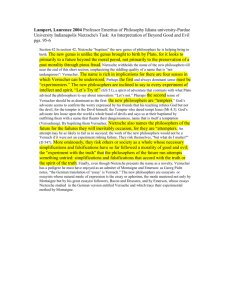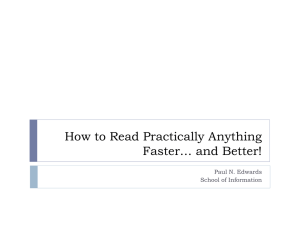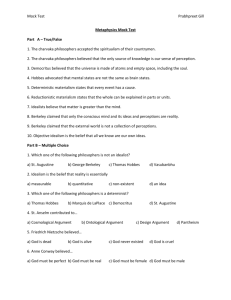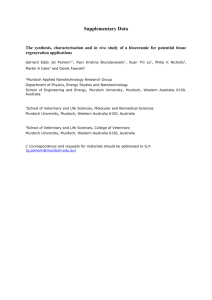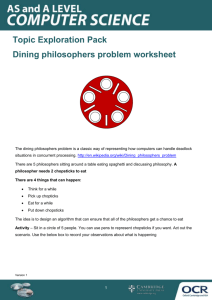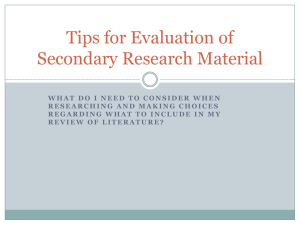Year 12 Philosophy Unit 3 SAC 2 2009
advertisement
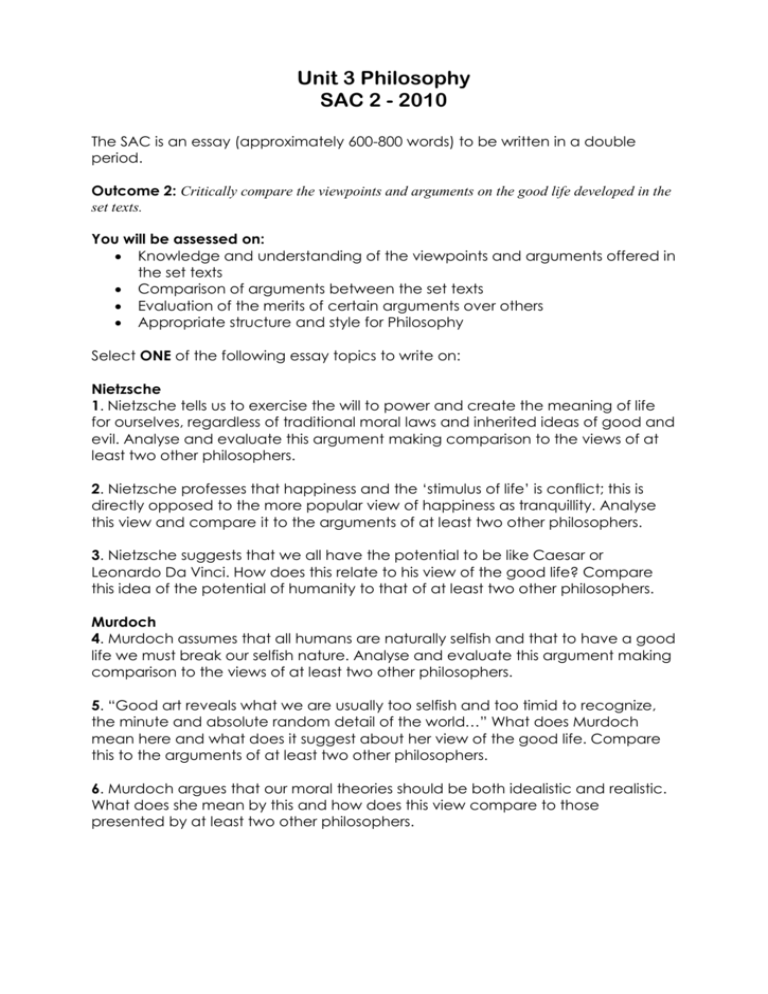
Unit 3 Philosophy SAC 2 - 2010 The SAC is an essay (approximately 600-800 words) to be written in a double period. Outcome 2: Critically compare the viewpoints and arguments on the good life developed in the set texts. You will be assessed on: Knowledge and understanding of the viewpoints and arguments offered in the set texts Comparison of arguments between the set texts Evaluation of the merits of certain arguments over others Appropriate structure and style for Philosophy Select ONE of the following essay topics to write on: Nietzsche 1. Nietzsche tells us to exercise the will to power and create the meaning of life for ourselves, regardless of traditional moral laws and inherited ideas of good and evil. Analyse and evaluate this argument making comparison to the views of at least two other philosophers. 2. Nietzsche professes that happiness and the ‘stimulus of life’ is conflict; this is directly opposed to the more popular view of happiness as tranquillity. Analyse this view and compare it to the arguments of at least two other philosophers. 3. Nietzsche suggests that we all have the potential to be like Caesar or Leonardo Da Vinci. How does this relate to his view of the good life? Compare this idea of the potential of humanity to that of at least two other philosophers. Murdoch 4. Murdoch assumes that all humans are naturally selfish and that to have a good life we must break our selfish nature. Analyse and evaluate this argument making comparison to the views of at least two other philosophers. 5. “Good art reveals what we are usually too selfish and too timid to recognize, the minute and absolute random detail of the world…” What does Murdoch mean here and what does it suggest about her view of the good life. Compare this to the arguments of at least two other philosophers. 6. Murdoch argues that our moral theories should be both idealistic and realistic. What does she mean by this and how does this view compare to those presented by at least two other philosophers.

